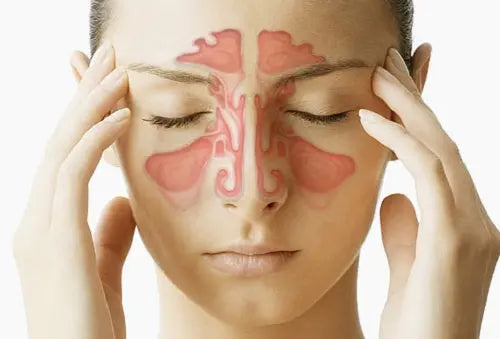
Nasal Congestion: Causes, Symptoms, and Treatments
Nasal Congestion: Causes, Symptoms, and Treatments
Nasal congestion, or stuffy nose, is a common symptom that can be caused by a variety of factors. It is characterized by a feeling of blockage in the nose, making it difficult to breathe. This article explores the causes, symptoms, and treatments of nasal congestion to help you better understand and manage this problem.
Causes of nasal congestion
Several factors can contribute to nasal congestion. Here are some of the most common causes:
- Common Cold: The most common viral infection, the common cold, causes inflammation of the nasal membranes, resulting in a stuffy nose.
- Allergic rhinitis: Contact with allergens (pollen, dust mites, pets) causes an inflammatory reaction in the nasal passages.
- Sinusitis: Inflammation of the sinuses from a bacterial, viral or fungal infection can cause significant congestion.
- Nasal polyps: Small, noncancerous growths in the nose, polyps can block the nasal passages.
- Deviated septum: A deviated septum, the cartilage that separates the two nostrils, can restrict airflow.
- Environmental irritants: Cigarette smoke, air pollution, chemicals and strong odors can irritate the nasal passages and cause congestion.
- Medications: Some medications, such as some blood pressure medications, can cause nasal congestion as a side effect.
- Pregnancy: Hormonal changes during pregnancy can cause nasal congestion.
Symptoms of nasal congestion
Symptoms of nasal congestion can vary in intensity, but commonly include:
- Difficulty breathing through the nose
- Stuffy nose feeling
- Nasal discharge (clear, thick, colored)
- Sneezing
- Itchy nose
- Pain or pressure in the sinuses (in case of sinusitis)
- Headaches
- Loss of smell or taste
- Fatigue
Treatments for nasal congestion
Treatment for nasal congestion depends on the underlying cause. Here are some treatment options:
- Nasal Saline Solutions: Rinsing the nose with saline helps remove irritants and moisten the nasal passages.
- Nasal decongestants (over-the-counter): Used short-term, they can relieve congestion, but prolonged use can cause a rebound effect.
- Nasal strip: gently widens the nasal passages, thus improving airflow for freer and more comfortable breathing. (Some sites offer them like AirVital , they are magnetic and more effective, or also in pharmacies in their old version)
- Antihistamines: Used to treat allergic rhinitis, they reduce inflammation and allergic symptoms.
- Nasal corticosteroids: Prescribed by a doctor, they reduce inflammation of the nasal passages and are effective for allergies and sinusitis.
- Humidifier: Adding moisture to the air can help relieve congestion.
- Home remedies: Rest, drinking plenty of fluids and using warm compresses can relieve symptoms.
When to see a doctor?
It is important to consult a doctor if:
- Nasal congestion lasts more than 10 days.
- You have a fever or other serious symptoms.
- You have significant breathing difficulties.
- Nasal congestion is accompanied by severe facial pain.
- Over-the-counter treatments do not relieve your symptoms.
Note: This article is for informational purposes only and is not a substitute for medical advice. Always consult a healthcare professional for proper diagnosis and treatment.


